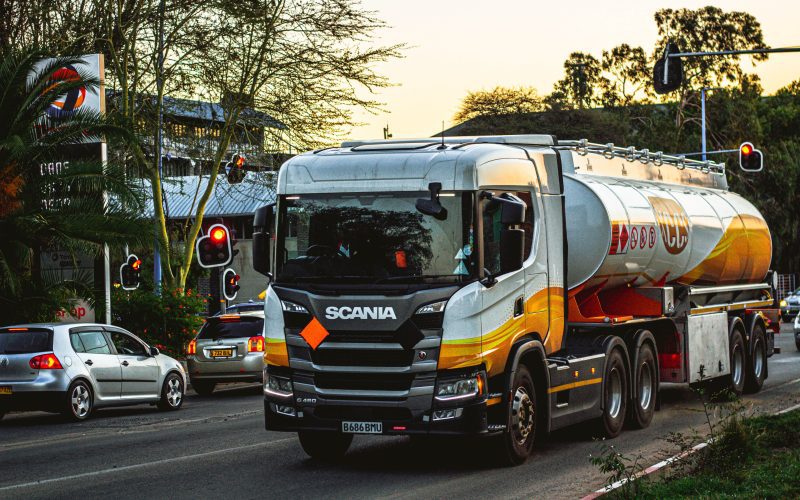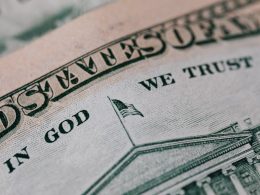Introduction
The US economy is a complex and interconnected system that can be impacted by a variety of factors. One factor that has been gaining attention recently is the slowing demand for fuel. As more people turn to alternative modes of transportation and energy sources, the traditional fuel industry is feeling the effects. But what does this mean for the overall health of the US economy? In this blog post, we will explore how slowing fuel demand connects with economic trends and what steps can be taken to address these changes.
What is Fuel Demand?
Fuel demand, simply put, is the amount of fuel that consumers require to power their vehicles and machinery. It can be measured in various ways such as gallons or liters per week, month or year. Fuel demand is determined by several factors including population growth, economic conditions, consumer behavior and political policies.
For instance, when there is a surge in population growth coupled with an increase in industrial activities, it leads to higher fuel demand. On the other hand, during recessionary times where people may lose jobs or cut back on spending due to reduced disposable income levels; this results in lower fuel demand.
Fuel demands are also influenced by consumer behavior patterns such as preferences for more fuel-efficient vehicles versus larger gas guzzlers. Additionally, government policies like taxes on gasoline prices can have significant impacts on overall fuel consumption trends.
Understanding what drives fluctuations in fuel demand is essential for policymakers who aim to create effective energy strategies that balance increased development with environmental sustainability goals.
Slowing Fuel Demand in the US
The US has been experiencing a slowdown in fuel demand, and this can be attributed to various factors. One of the primary reasons for this decline is the COVID-19 pandemic that led to an economic downturn. The lockdown measures resulted in reduced transportation activities, which significantly impacted fuel consumption.
Another reason why there is a drop in fuel demand is due to the increasing popularity of electric vehicles and renewable energy sources like solar and wind power. Many people are now looking for more sustainable alternatives that have little environmental impact.
Additionally, advancements in technology have made cars more efficient, so they use less fuel than before. This means that even though there may be more cars on the road today compared to several years ago, overall fuel consumption remains lower.
The decrease in demand has also affected oil prices globally as many countries rely heavily on the US market for their oil exports. With fewer buyers willing to purchase oil from these countries, it has become challenging for them to maintain their economies’ stability.
Slowing fuel demand will continue to play a significant role not only in shaping America’s economy but also its global relations with other nations. As such, policymakers must find ways to adapt while ensuring continued growth without compromising on sustainability goals.
The Impact of Slowing Fuel Demand on the US Economy
The slowdown in fuel demand has a significant impact on the US economy. As the world’s top oil-consuming country, any decrease or increase in fuel consumption will have a ripple effect across various sectors and industries.
One of the most evident impacts of slowing fuel demand is its effects on job creation. The energy sector alone employs more than 6 million people in the United States, with many jobs in drilling, refining, and transportation. Reduced consumer spending on gasoline translates to lower profits for companies involved in these areas leading to reduced hiring or layoffs.
The automotive industry also feels the brunt of reduced fuel demand as consumers tend to purchase fewer cars when gas prices are high due to budget constraints. Additionally, automakers may shift their focus from producing larger vehicles that consume more gas if they anticipate long-term low-gas-price trends.
Moreover, slow downs can affect state budgets as states heavily rely on taxes paid by oil firms operating within their boundaries; this drop can result from less production resulting from limited customer demands
Slowing Fuel Demand presents several challenges for policymakers seeking strategies for economic growth; howeverm some advantages may come out like reducing carbon footprint through encouraging innovations and alternatives energies nonetheless it’s essential to find ways to address it without causing further harm or imbalances along with other factors affecting our economy.
What Can Be Done to Address Slowing Fuel Demand?
There are several ways that can be implemented to address the issue of slowing fuel demand in the United States. One approach could be investing more in renewable energy sources such as solar, wind and hydro power. This will not only help reduce our dependence on non-renewable fuels but also create jobs in a growing industry.
Another solution would be to encourage consumers to use public transportation or carpooling options. By doing so, we can significantly reduce the number of cars on the road which results in less fuel consumption and ultimately help slow down the decline in fuel demand.
Additionally, incentivizing companies to invest more heavily into research and development for alternative forms of transportation such as electric vehicles, hydrogen-powered vehicles etc., could lead to a substantial reduction in greenhouse gas emissions while simultaneously reducing fuel consumption.
Implementing policies like carbon taxes or cap-and-trade systems could provide economic incentives for businesses to decrease their reliance on traditional fossil fuels by increasing costs associated with pollution. These types of policies have been proven effective overseas and may play a crucial role domestically as well.
It’s important that steps are taken towards addressing this issue since long-term solutions will require significant effort from all stakeholders involved including government officials, private sector entities, environmental groups etc.
Conclusion
It is evident that slowing fuel demand has a significant impact on the US economy. The decrease in fuel consumption affects various sectors such as transportation, manufacturing, and agriculture. It also leads to decreased revenue for oil companies and job losses in the affected industries.
To address this issue, policymakers need to encourage investments in alternative energy sources and infrastructure development aimed at improving energy efficiency. Additionally, promoting public awareness on conservation measures can reduce overreliance on fossil fuels.
The COVID-19 pandemic has brought about unprecedented changes globally, including a reduction in fuel demand. However, we must embrace sustainable practices that promote economic growth while minimizing environmental damage. By doing so, we can create an inclusive and resilient future for all Americans.












